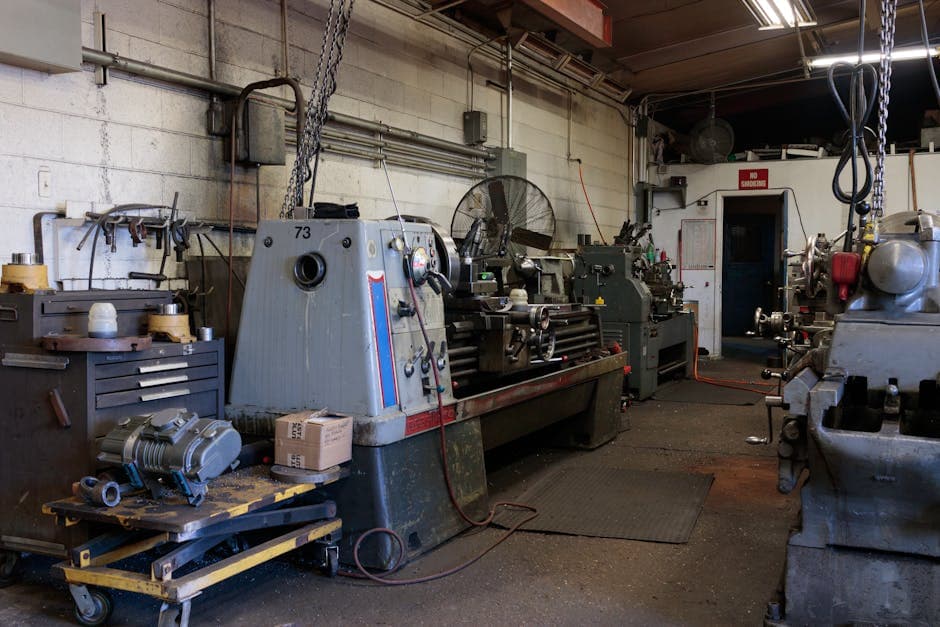
Water Conservation Technologies for Industrial Applications
Water is a precious resource that is increasingly under pressure from growing demand, pollution, and climate change. For industrial facilities, implementing effective water conservation technologies is not only environmentally responsible but can also lead to significant cost savings and operational benefits.
The Importance of Industrial Water Conservation
Industrial operations account for approximately 22% of global water consumption. As water scarcity becomes more prevalent worldwide, industries face several challenges:
- Rising Water Costs: The price of water is increasing in many regions, directly impacting operational expenses.
- Regulatory Pressure: Governments are implementing stricter regulations on water usage and wastewater discharge.
- Supply Risks: Water shortages can disrupt operations and production schedules.
- Corporate Responsibility: Stakeholders expect companies to demonstrate environmental stewardship.
Cutting-Edge Water Conservation Technologies
Fortunately, advancements in water management technologies are helping industrial facilities significantly reduce their water footprint:
Advanced Monitoring and Control Systems
Digital technologies are revolutionizing water management:
- Smart Meters and Sensors: Provide real-time data on water usage, quality, and potential leaks.
- AI-Powered Analytics: Identify patterns and optimization opportunities that might not be apparent through manual monitoring.
- Automated Control Systems: Adjust water flow and treatment processes based on real-time conditions.
Water Recycling and Reuse Systems
Treating and reusing water within industrial processes can dramatically reduce freshwater consumption:
- Membrane Filtration: Technologies like ultrafiltration, nanofiltration, and reverse osmosis can purify water for reuse in various applications.
- Biological Treatment Systems: Advanced biological processes remove contaminants while consuming less energy than traditional methods.
- Closed-Loop Cooling Systems: Recirculate cooling water instead of using once-through systems, reducing water consumption by up to 95%.
Water-Efficient Process Technologies
Redesigning processes to use water more efficiently:
- Waterless and Low-Water Cleaning Systems: High-pressure air, mechanical brushes, or specialized cleaning agents can reduce or eliminate water used in cleaning operations.
- Dry Processing Methods: Alternative technologies that accomplish the same results without using water.
- Cascading Water Use: Using water from one process in another that has less stringent quality requirements.
Rainwater Harvesting and Alternative Water Sources
Reducing reliance on municipal water supplies:
- Rainwater Collection Systems: Capture and store rainwater for use in cooling, cleaning, or irrigation.
- Greywater Utilization: Using lightly contaminated water from one process for applications where high-quality water is not required.
- Treated Municipal Wastewater: Partnering with local utilities to use treated wastewater for industrial processes.
Implementation Strategies for Success
Adopting water conservation technologies requires a strategic approach:
Conducting a Water Audit
Before implementing new technologies, understand your current water usage:
- Identify all water inputs, outputs, and uses within your facility
- Measure consumption at different points in your processes
- Benchmark against industry standards
- Prioritize areas with the highest potential for improvement
Developing a Comprehensive Water Management Plan
Create a roadmap for water conservation:
- Set specific, measurable water reduction targets
- Evaluate potential technologies based on ROI and environmental impact
- Establish implementation timelines and responsibilities
- Secure necessary resources and stakeholder buy-in
Training and Engagement
Technology alone isn't enough—people make the difference:
- Train employees on new systems and best practices
- Foster a culture of water conservation
- Establish incentives for water-saving innovations
- Regularly communicate progress and successes
Return on Investment
While water conservation technologies require upfront investment, they typically deliver substantial returns:
- Direct Cost Savings: Reduced water bills and wastewater treatment costs
- Energy Savings: Less water means less pumping, heating, and treating, resulting in lower energy consumption
- Regulatory Compliance: Avoiding fines and penalties for excessive water use or discharge violations
- Risk Reduction: Greater resilience against water shortages and supply disruptions
- Enhanced Reputation: Demonstrating environmental leadership can improve relationships with customers, communities, and regulators
Conclusion
As water resources become increasingly constrained, industrial facilities that adopt innovative water conservation technologies will gain competitive advantages while contributing to environmental sustainability. By implementing a comprehensive approach to water management—combining advanced monitoring, recycling systems, efficient processes, and alternative water sources—companies can achieve significant reductions in water consumption while improving their bottom line.
At HPATS, we offer a range of water conservation technologies and expertise to help industrial facilities optimize their water usage. Contact our team to learn how we can support your sustainability goals while enhancing operational efficiency.
About the Author
Sarah Johnson
Expert in Water & Wastewater with years of industry experience. Regularly contributes insights and analysis on industrial trends and technologies.
You Might Also Like

Digital Transformation in Oil & Gas: Key Technologies for 2024
Explore how digital twins, AI, IoT, and robotics are revolutionizing the oil and gas industry in 2024, creating opportunities for enhanced efficiency, safety, and sustainability...

Advanced Water Treatment Technologies: Innovations for Industrial Applications
Discover the latest innovations in industrial water treatment technology, from smart water management systems and advanced membranes to PFAS removal solutions and resource recovery systems...

The Importance of Quality Valves in Oil and Gas Operations
In the oil and gas industry, the reliability and performance of equipment are paramount to ensuring operational efficiency, safety, and envi
